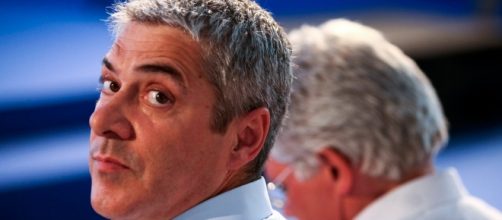After being arrested in 2014, former Portugal’s Prime Minister (2005-2011), José Sócrates, was finally formally charged with 31 crimes early this month, in a document 4000 pages long. Along with the former politician, there are another 27 defendants accused (19 individual citizens and 9 companies), each charged with several crimes, such as corruption, money laundering, and tax fraud. It’s calculated that this corruption scheme penalized the Portuguese State to more than 58 million euros, and José Sócrates alone, around 19 million.
This is already considered one of the biggest trials in the country’s history and is just now beginning.
It will probably take years before the final outcome is known.
The beginning of the thread
Although José Sócrates’ arrest caught the country by surprise back on November 21st of 2014, the case we now know, started in early 2012, when a suspicious transfer of 600 thousand euros was made from an account of Carlos Santos Silva. The childhood friend of the former politician and one of the most influential managers in the company Grupo Lena, transferred the payment to the account of a company called Codecity Players Investment, owned by Rui Pedro Soares, former manager of the company Portugal Telecom and current president of the football club Belenenses, and his wife Diana Barroso Soares. The State-owned bank, Caixa Geral de Depósitos, reported the transfer as required by law, to the Police’s Financial Information Unit (UIF), which then followed the money trail.
It soon detected more suspicious connections. A company called Worldcom, owned by Rui Pedro Soares’ parents and lead by his brother, held 35 percent of Codecity Players Investment. Worldcom at the beginning of 2011, made a move to buy the sports’ transmission rights of La Liga (Spanish football league) in Portugal from Mediapro, with a value three times higher the current right’s holder. A few months later, the company Partrouge Media, owned by businessman Miguel Pais do Amaral, bought the company Worldcom, to get La Liga’s transmission rights. The businessman wrote a check to the value of 2.7 million euros in the name of Worldcom to close the deal. But the check appeared in Carlos Santos Silva’s personal account, which raised the suspicion of a shadow shareholder.
In 2012, when José Sócrates was living and studying in Paris, after retiring from politics, his mother sold a property valued at 260 thousand euros for 600 thousand euros, to Carlos Santos Silva, and part of that money ended up in the account of the former Prime Minister. During that same year, José Sócrates received around 500 thousand euros, and this data-crossing lead the investigators to look into his bank movements, allowing them to see the “luxurious” life the former politician had in Paris, with monthly expenses between 10 to 15 thousand euros.
On July 19th of 2013, the Operation “Marquês” was formally filed by the judicial authorities.
The web’s form
During his preventive arrest followed by house arrest, without a formal charge, the investigation of this case lead to connections that stretched to many more companies and individuals.
With José Sócrates and his childhood friend as central figures, there were other obscure movements that brought other prominent names into the investigation, and now, also formally accused. Among them, there’s Ricardo Salgado, president at the biggest private Portuguese bank, Banco Espírito Santo (BES), which collapsed in 2014; Zeinal Bava, former star CEO at Portugal Telecom, a telecommunications’ company partly owned by the State, at the time of Sócrates’ government, which later was sold to Altice; Henrique Granadeiro¸former chairman at Portugal Telecom; and Armando Vara, former manager at Caixa Geral de Depósitos.
The defence
José Sócrates has been publicly active on his defence. Even when in preventive prison, he would make public statements through his lawyers, always denying any of the rumors, and constantly portraying his arrest with no formal charges, as a political move from his opponents (at the time, there were rumors he was preparing to run for President).
After leaving prison, he gave interviews, constantly denying every suspicion raised against him. When asked about the money spent in Paris, since he has always worked as a politician, he says that these were loans conceded by his friend Carlos Santos Silva, although he never explained how he intended to pay his friend back.
His lawyers have now 50 days to contest the allegations against him, and after that, the trial will move forward. At this point, the end date of this enormous trial is unknown. Many experts say, that this will probably take years to its conclusion.


